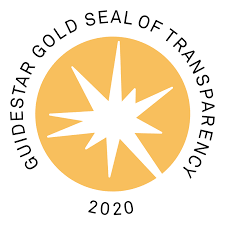The Appeals Chamber of the International Criminal Court (ICC) in the Hague has upheld an appeal against the Pre-Trial Chamber’s decision not to authorise an investigation into alleged war crimes and crimes against humanity committed in the context of the conflict in Afghanistan. This paves the way for an independent investigation of abuses committed by US, Taliban and Afghan forces during the conflict.
Thousands of victims came forward to share their stories with the Prosecutor when she began her preliminary investigation, but in April 2019, the court ruled that the refusal of states to co-operate, the difficulty of gathering evidence in Afghanistan and the time that has elapsed since the alleged crimes meant that an investigation “would not serve the interests of justice”. The court had never previously rejected a Prosecutor’s request to open an investigation.
That decision, days after the Prosecutor’s US visa was revoked, was widely perceived to be a result of US pressure. The Prosecutor appealed against it, as did a group of around 100 victims. That appeal was upheld today – the first time the US has ever been held to account for alleged crimes committed during the ‘war on terror’ era. The Appeals Chamber also held that the ICC has jurisdiction over crimes committed by the CIA in black sites outside Afghanistan.
The court’s decision comes at a time when both the US and UK are attempting to block domestic investigations into ‘war on terror’ era torture and rendition. The UK Government is facing a High Court challenge of its failure to hold an independent judge-led inquiry into historic abuses. In the US President Donald Trump recently intervened in three war crimes cases, pardoning two service members and restoring the rank of a third.
Pakistani taxi driver Ahmed Rabbani, who was rendered to Afghanistan and tortured for 540 days by US personnel, was among the victims who supported the appeal. Ahmed has been held in Guantánamo since 2004 without charge or trial. Responding to the news that the appeal had been upheld, he said: “If the people who tortured me are investigated and prosecuted, I will be very happy. I would ask just one thing from them: an apology. If they are willing to compensate me with $1 million for each year I have spent here, that will not be enough. I am still going through suffering and torture at present. But I would be happy with just three words: ‘We are sorry.’”
Reprieve’s Deputy Head of UK litigation, Preetha Gopalan, said: “This decision is welcome news to everyone who believes that the perpetrators of war crimes should not enjoy impunity, no matter how powerful they are. This is the first time the US will be held to account for its actions, even though it tried to bully the ICC into shutting this investigation down. That the ICC did not bow to that pressure, and instead upheld victims’ right to accountability, gives us hope that no-one is beyond the reach of justice.”
“On behalf of our client, Mohammed al-Asad and his surviving family, we applaud the Appeals Chamber for rejecting the repugnant logic of the US torture program, which sought to place detainees in a legal black hole and deny them access to justice for the abuses they suffered,” said Nikki Reisch, Counsel for the Global Justice Clinic at NYU School of Law. “At a time when authoritarian tendencies are on the rise, the decision sends an important signal to all states that might does not make right, and that no one is above the law.”
“Today, the International Criminal Court breathed new life into the mantra that ‘no one is above the law’ and restored some hope that justice can be available—and applied—to all,” said Katherine Gallagher, Senior Staff Attorney at the Center for Constitutional Rights. “For more than 15 years, like too many other victims of the US torture program, Sharqawi Al-Hajj and Guled Duran have suffered physically and mentally in unlawful US detention, while former senior US officials have enjoyed impunity. In authorising this critical and much-delayed investigation into crimes in and related to Afghanistan, the Court made clear that political interference in judicial proceedings will not be tolerated.”
